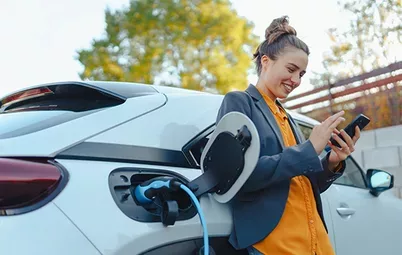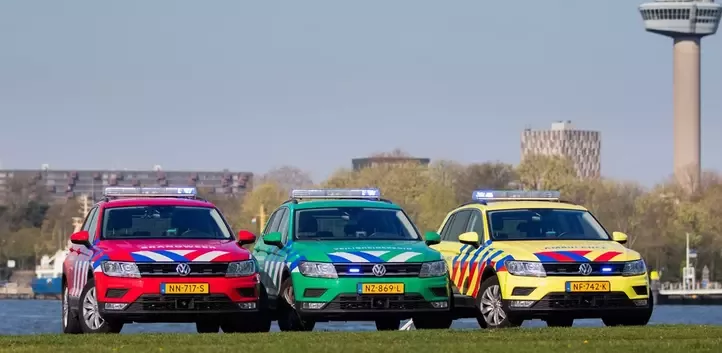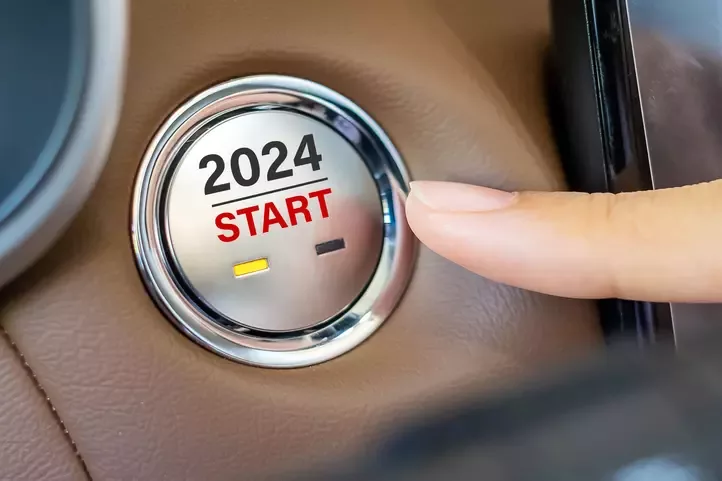Electric driving has matured… but hidden costs are rising

A company fleet consisting of more than 70 percent electric cars; it is increasingly a reality. Now that commercial electric driving has become mainstream, the next challenge is: how do we keep charging costs under control?
The Netherlands is rapidly moving towards half a million all-electric cars on the road. 1 in 20 cars today is an EV, but that share is rising now that almost 1 in 3 newly sold models runs on electricity. Commercial drivers in particular are falling for the charm of the zero-emission car, boosted by their employer's sustainability targets and some tax benefits. Add to this a mature (fast) charging network and a wide range of attractive electric models, and you have all the success factors you need. The grey license plate company car is also increasingly electric, as the largest Dutch city centres are establishing emission-free zones for all parcel deliverers, handymen and other suppliers.
A forest of charging card providers
Fleet Support, the independent specialist in fleet management and mobility, can clearly see in its daily practice how fast the electrification of commercial fleets is happening. Especially with new customers, at least 70 percent of the fleet runs on electricity. This new, green reality brings with it a completely different fleet landscape. A landscape in which charging card and charging station providers are tumbling over each other to support fleet operators in their charging needs. Some try to stand out by offering a 'free' charging card, while others offer competitive kWh rates. That wide variety in start-up costs, unit rates, roaming and transaction costs makes it extremely difficult for fleet operators with many cars to properly manage their charging costs. There are a lot of hidden costs here.
Transaction costs
Arie Brundel, Principal Consultant at Fleet Support, notes that fleet owners and their lease drivers are hardly aware of the phenomenon of transaction costs. "Especially with frequent chargers, charging costs add up significantly in relation to the amount of power consumed each time. The so-called 'free card' then actually turns out to be quite expensive. Nor is every lease driver aware of the blocking fee or additional connection fee that comes into effect if an electric car is left at a charging station for too long. It is a cost that can reach 12 euros per charge. That adds up!"
Know your lease driver
Fleet Support helps fleet operators properly map the charging behaviour of their lease drivers, and then align the charging behaviour with the ideal charging card provider. Or vice versa. If it turns out that the average lease driver recharges small bits as many as five times in a day, it is usually financially smart to go with a provider without a (high) starting rate. Precisely because lease drivers are unaware of high charging costs, a simple education session around charging works wonders. Also effective: clear charging rules. For example, ensure that the office charging station can be used for a maximum of 4 hours.
Home charging
An important question fleet owners should also ask themselves: is home charging always necessary? In many cases, there is already an excellent charging facility at the office. And is it smart to include the home charging station in the lease rate? After all, a charging station lasts longer than a lease car contract.
Making costs transparent
To understand their expenses around electric driving, Fleet, HR and Finance Managers are knocking on Fleet Support's door. Fleet Support helps those companies with advice and reports, among other things. By showing the range of home charging rates, for example, it quickly brings excesses to light.
Fleet Support conducted extensive research into charging station facilities and providers and the costs involved. It also recently published the whitepaper 'From card to charging station: how to control the operational costs of your electric fleet'. In it, Fleet Support discusses 7 points of interest for vehicle operators looking for a charging card and charging card provider.
Want to know more? You can download the whitepaper now.



